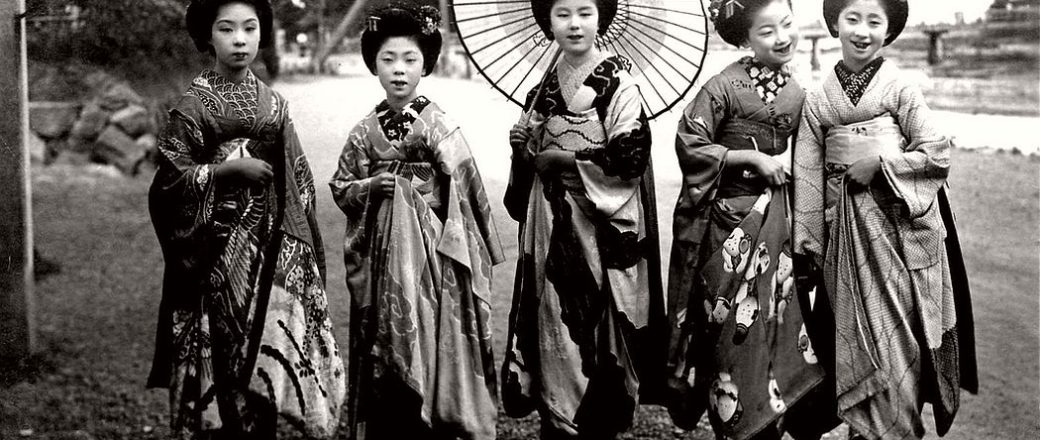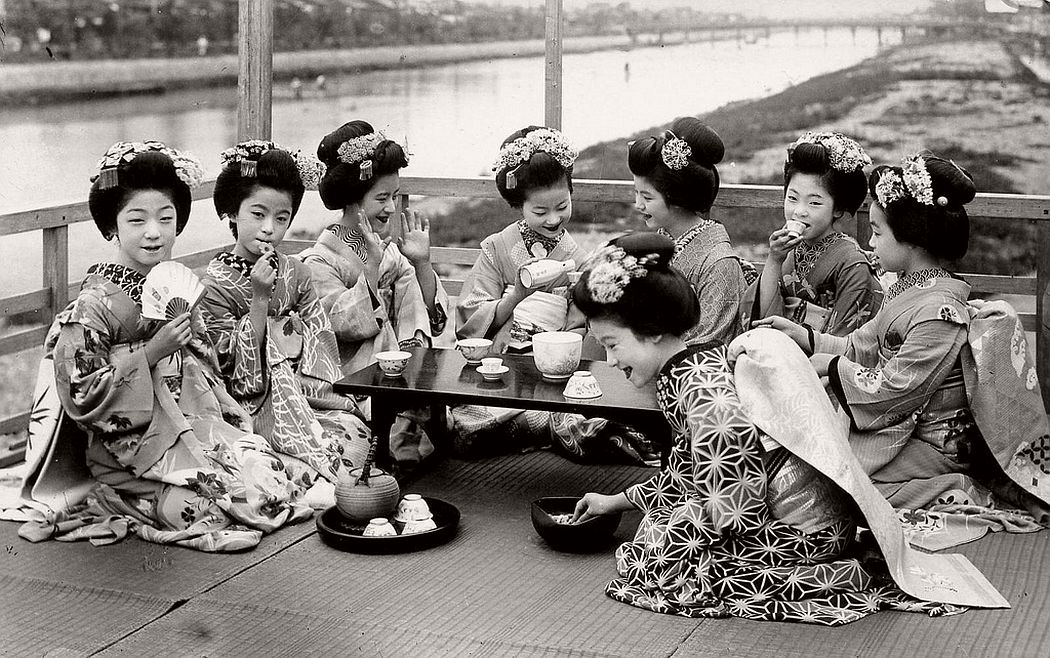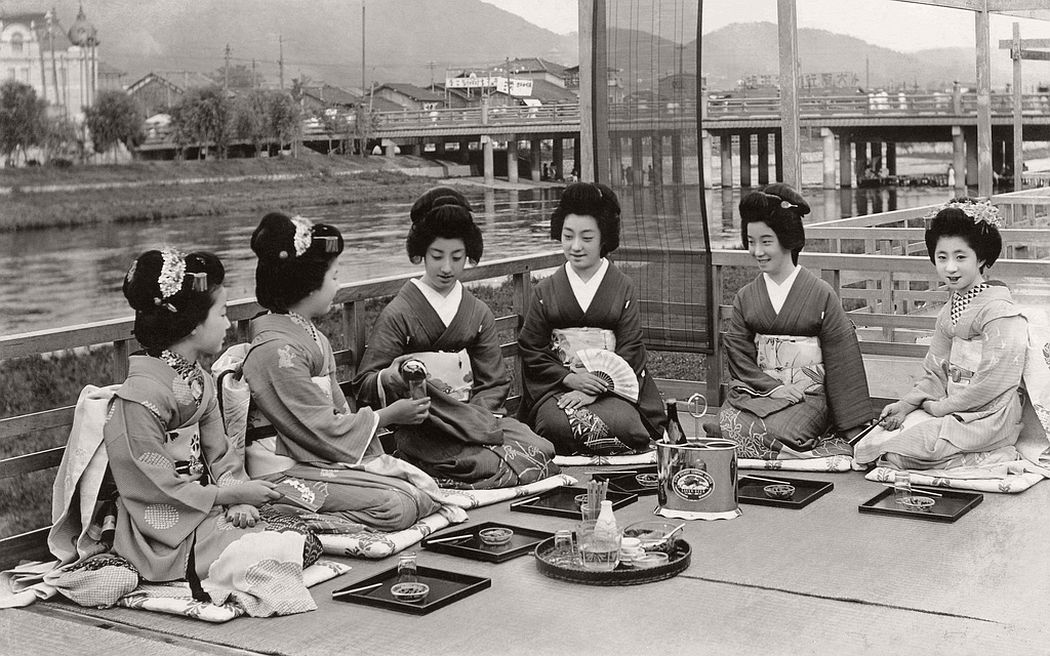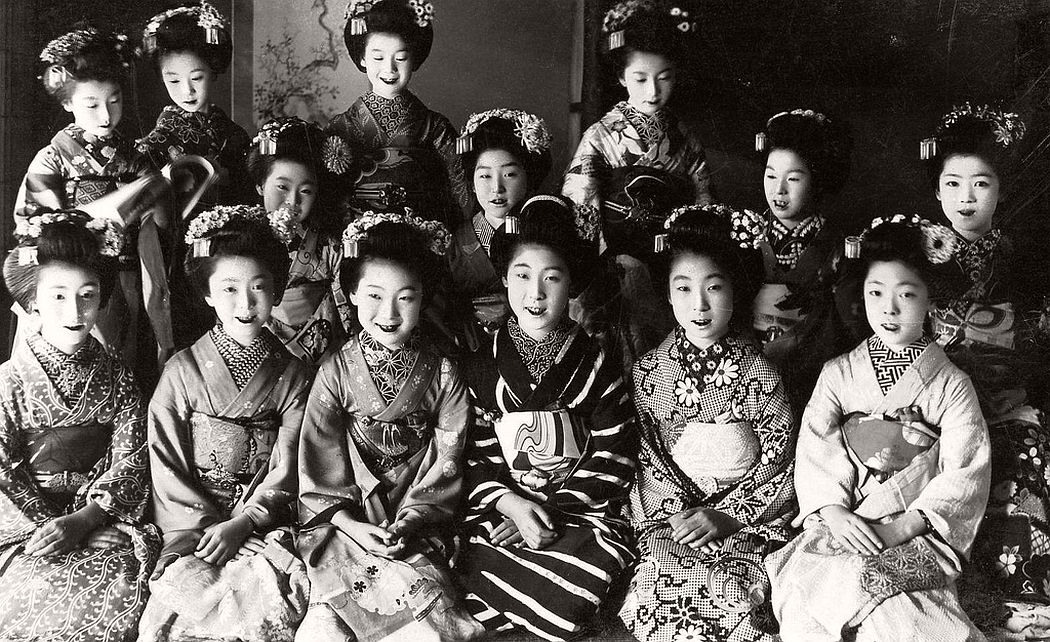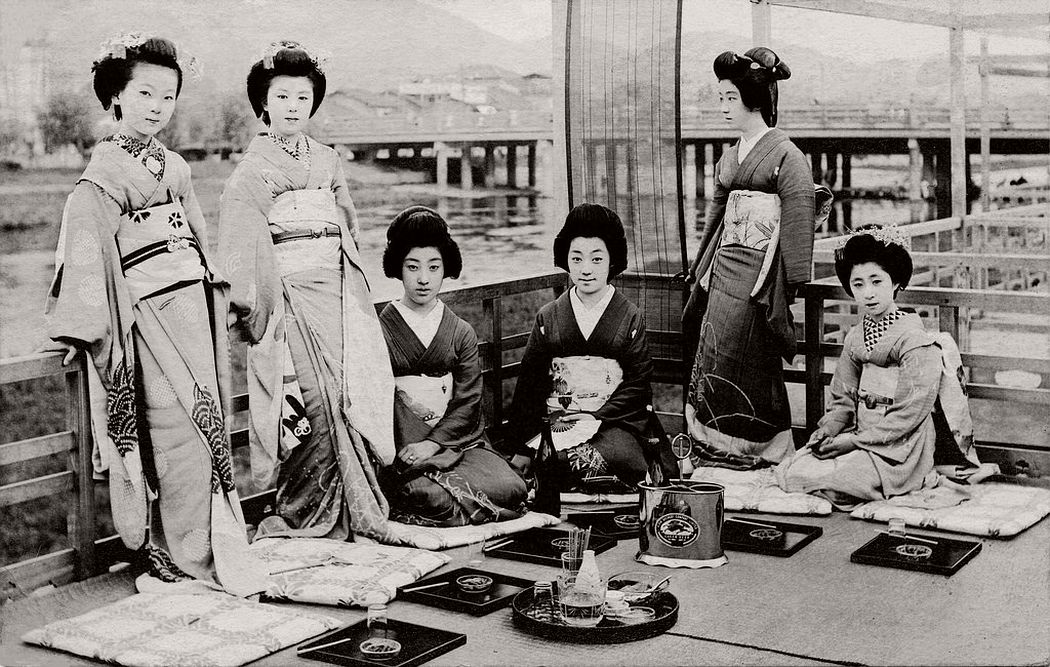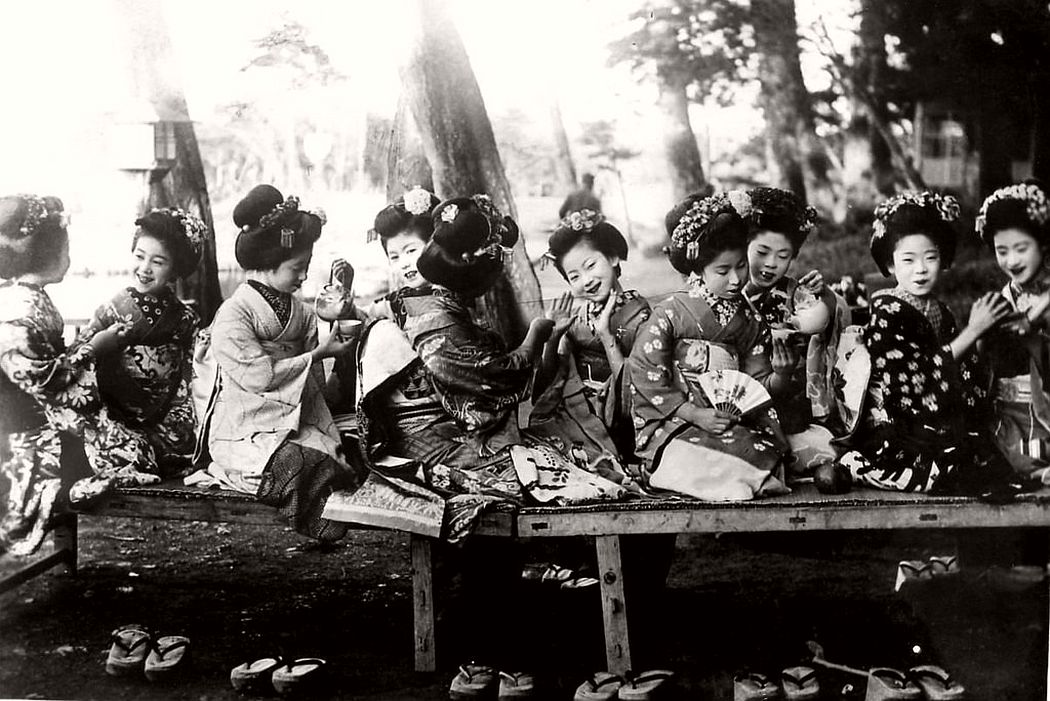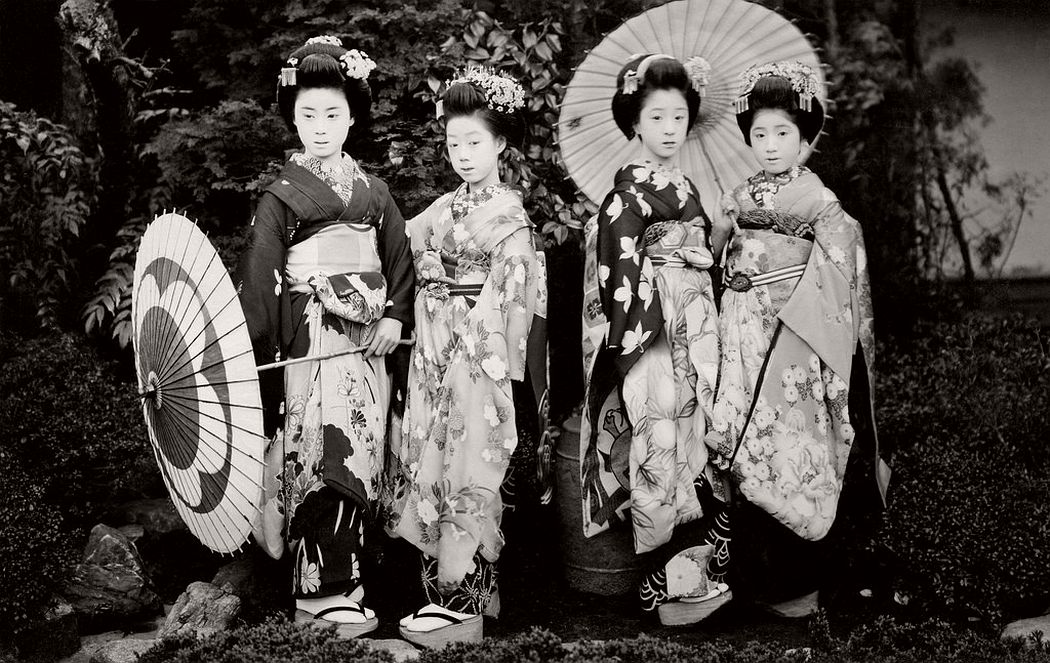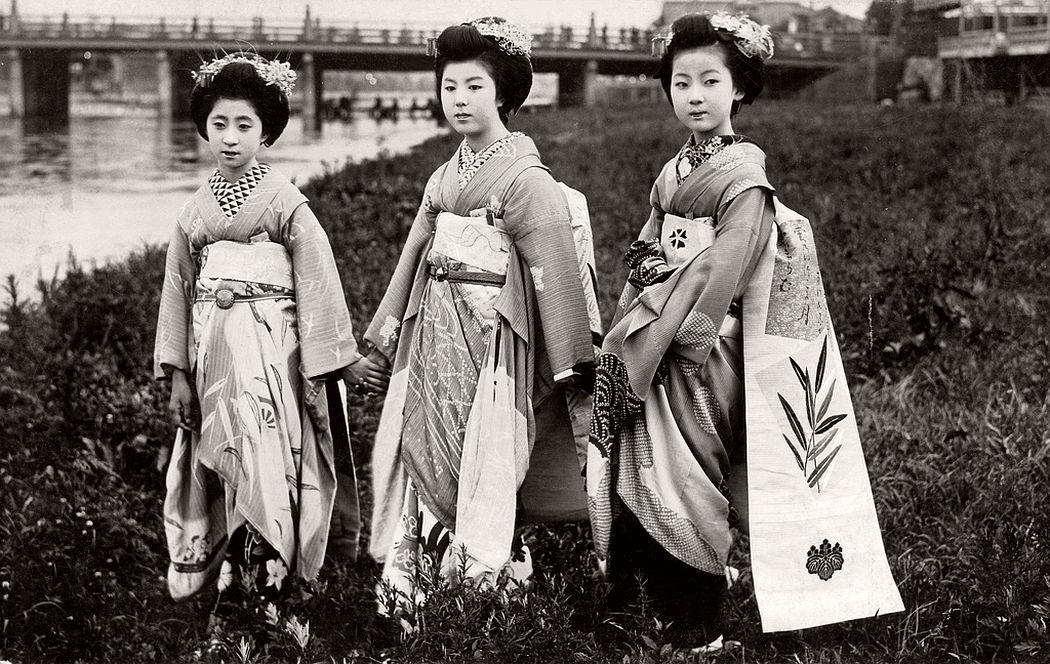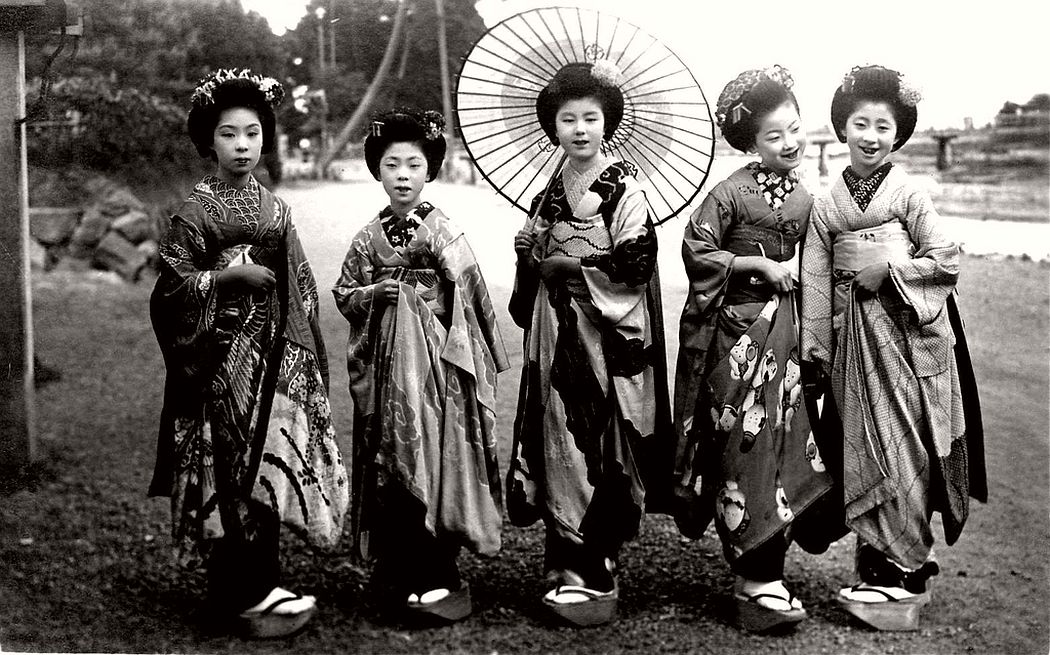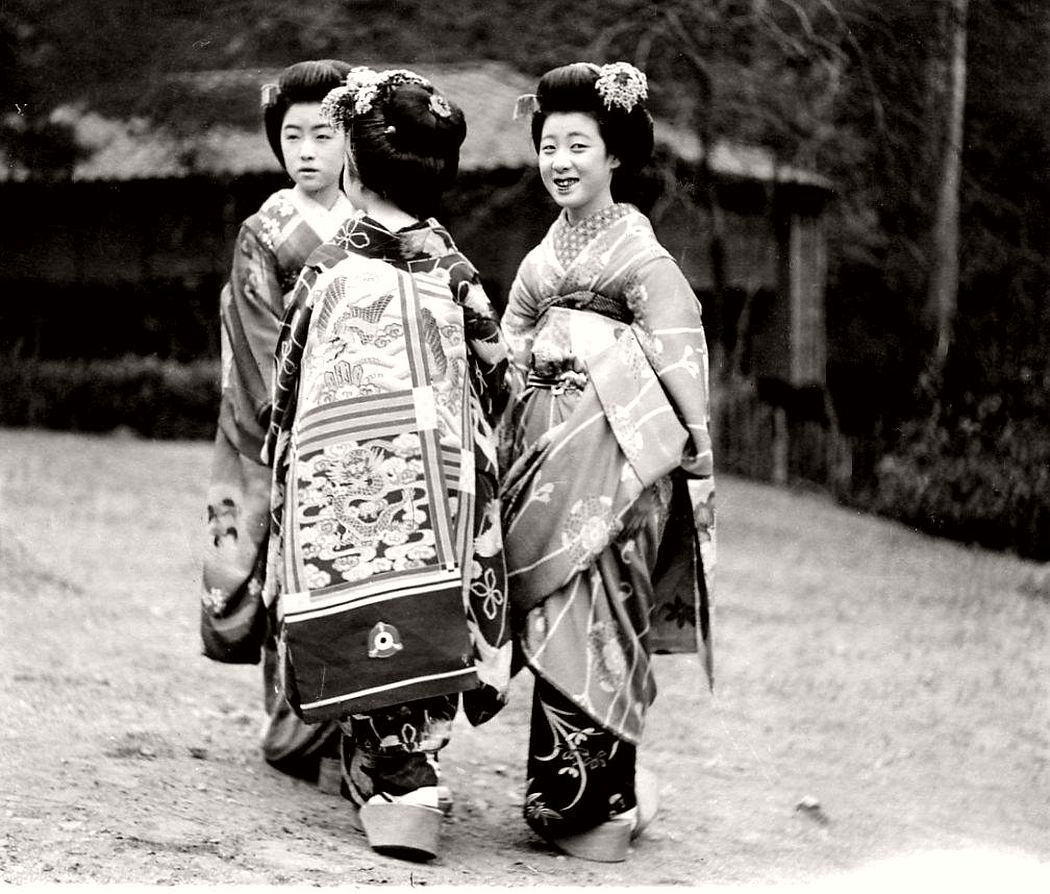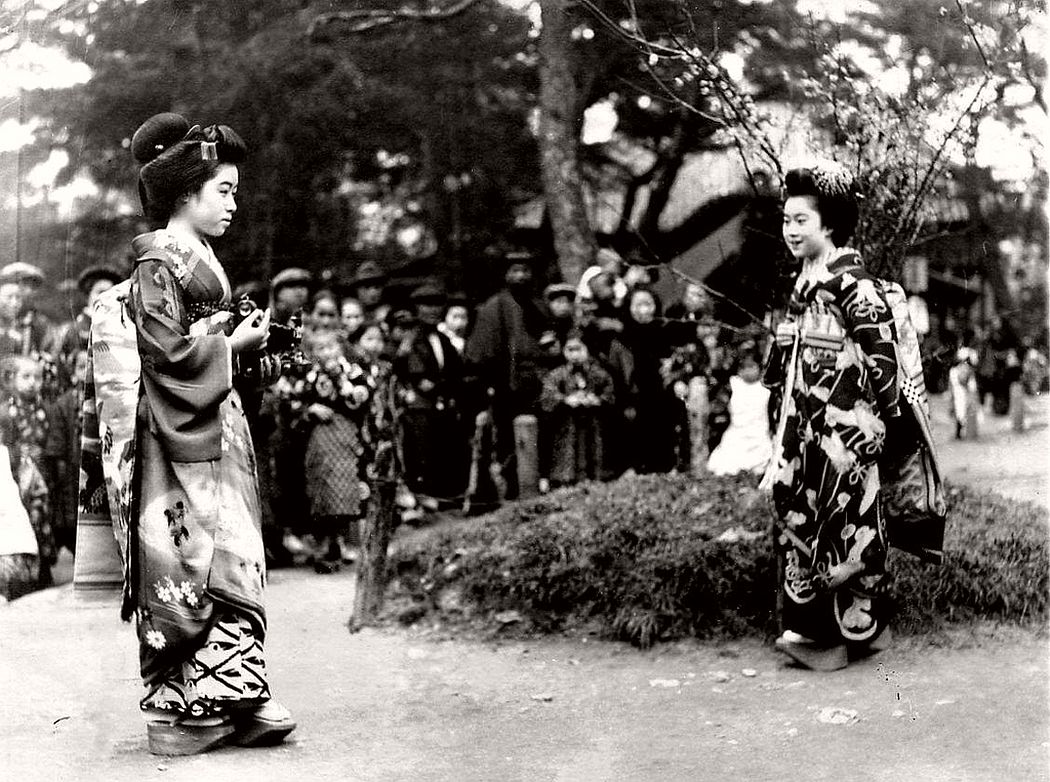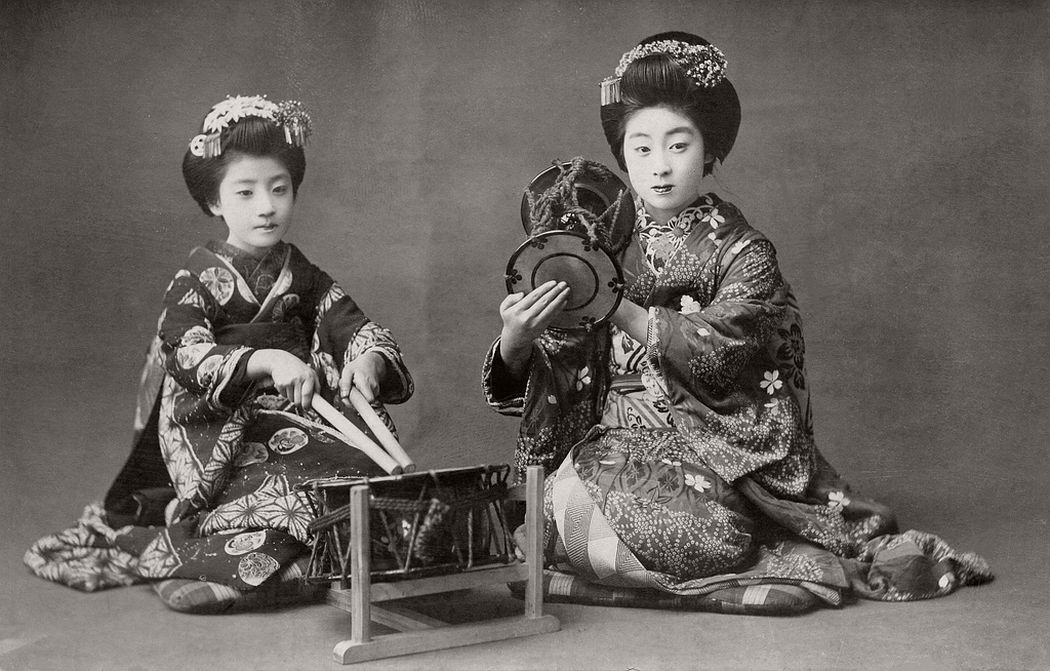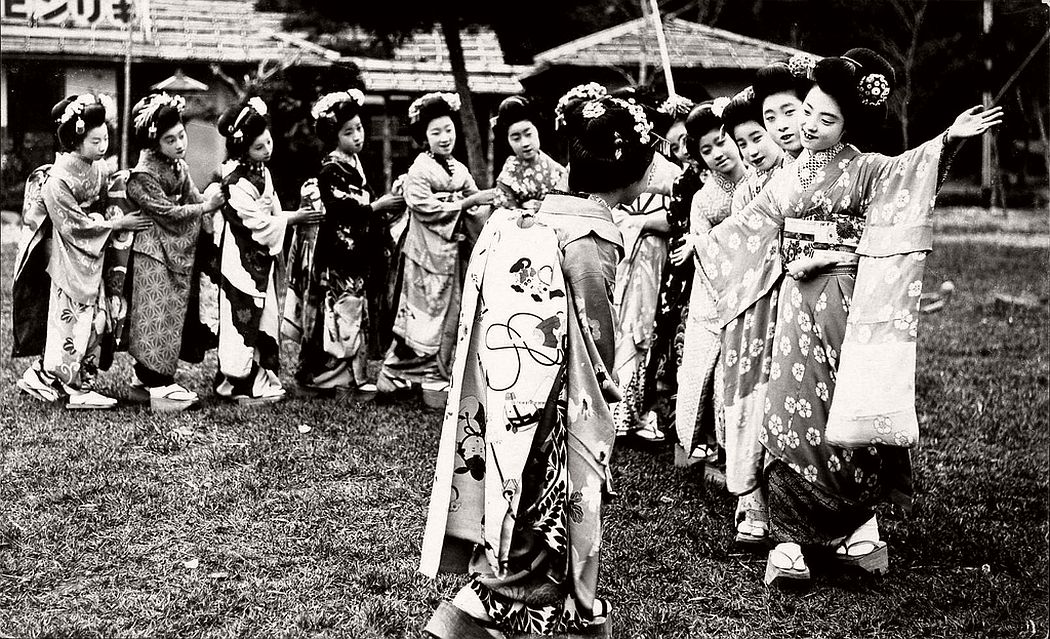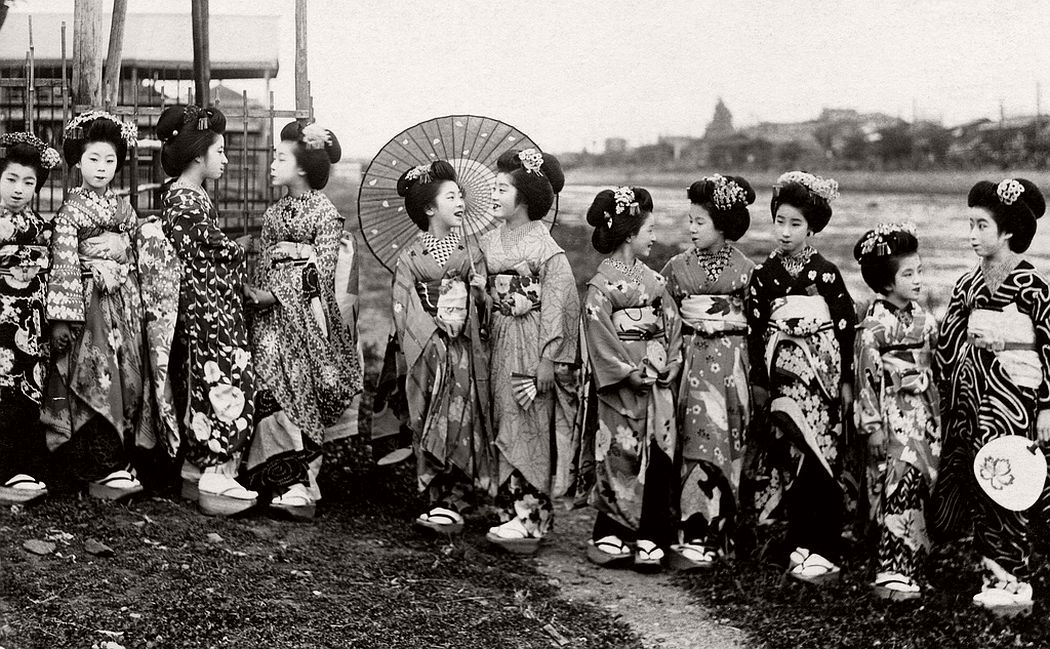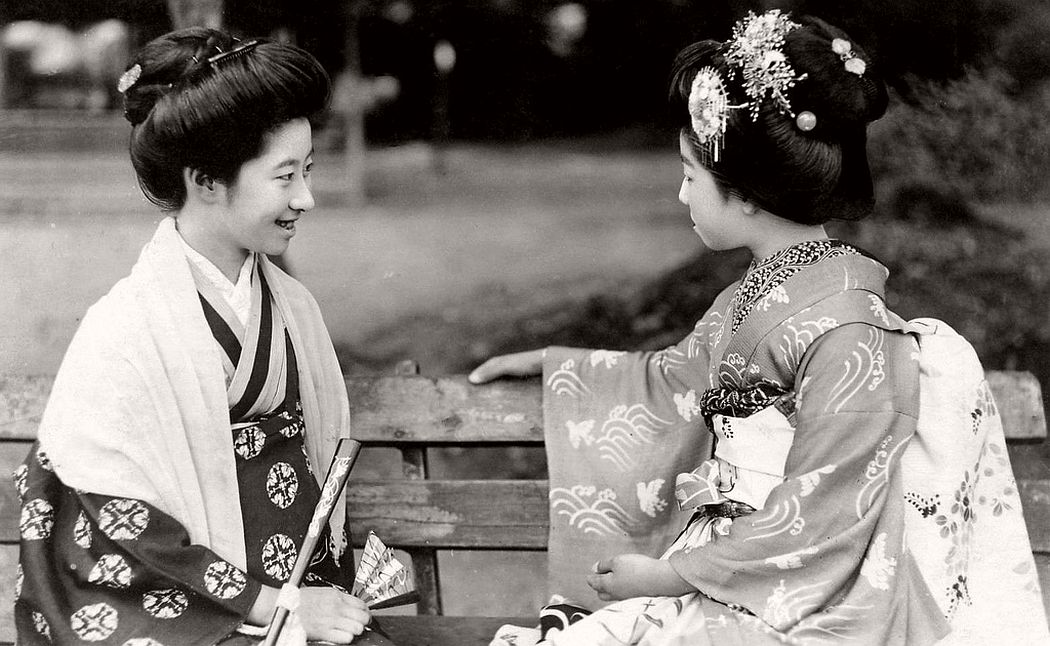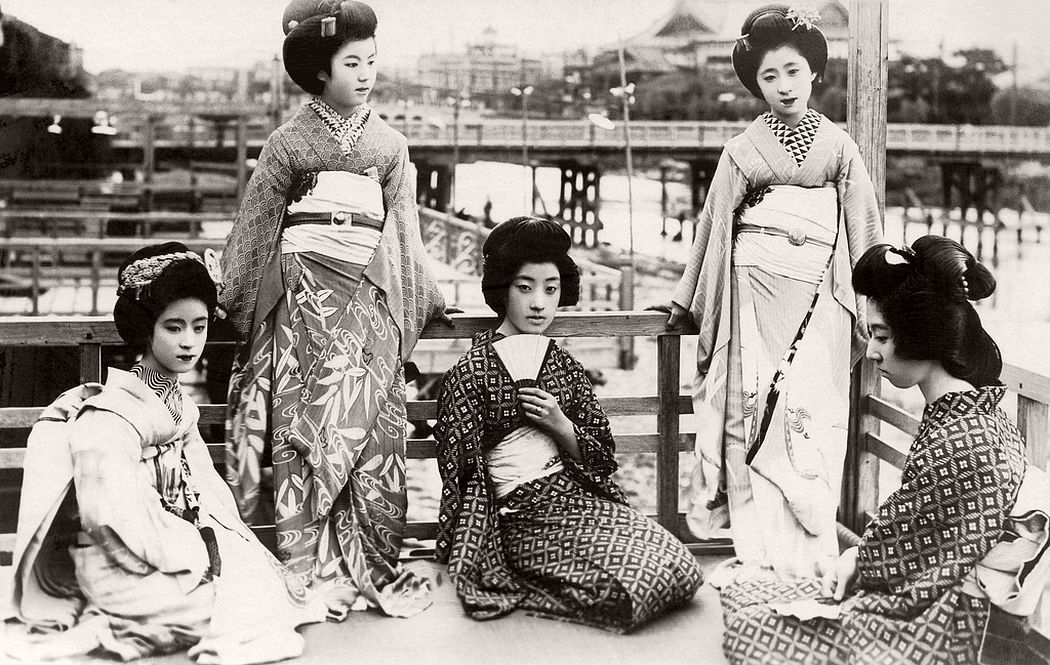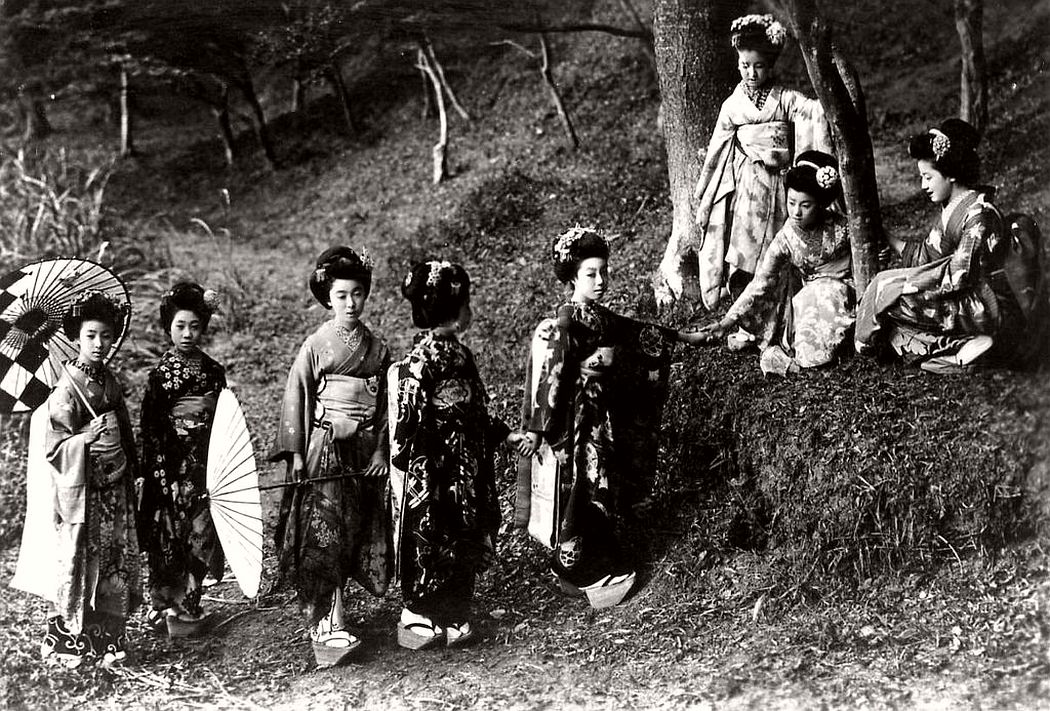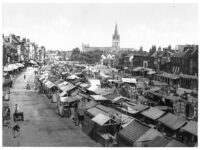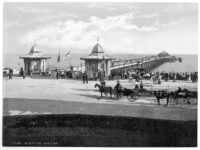Maiko originated from women who served green tea and dango (Japanese dumpling made from rice flour) to people who visited the Kitano Tenman-gū or Yasaka Shrine (these are the two of the famous shrines in Kyoto) at teahouses in the temple town about 300 years ago. At first, women served only green tea and dango, but they gradually started to perform songs and dances for visitors. In the morning, maiko take lessons to polish their performances. At night, they go out to work. They are usually given the opportunity to eat at high-quality Japanese-style restaurants or stay in Japanese-style hotels. They perform dances, songs, play the shamisen, and serve visitors with sake. Recently, their jobs have expanded to include visiting nursing institutions or hospitals. Some maiko are also dispatched overseas.

A Maiko girl taking a photograph with an early Kodak folding camera, while being guided by another Maiko, ca. 1920s

